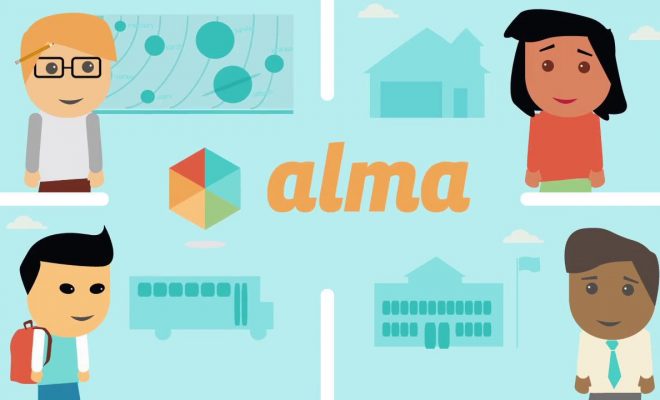Alma Takes Personalized Learning to the Next Level with Student Choice

The idea that no two students learn in exactly the same way or have the same interests is nothing new. Even back in the 1800s, educators were advocating for an educational system that took the personalized needs of the student into account when offering curricular options, which they believed would help children learn independence, both academically and in life. This idea was formulated with the thought that all students learn at a different pace and should be allowed to take the time they need to work on their studies and explore the areas that interest them the most. Before the rapid advancements in technology of the past two decades, these ideas were just that: lofty and unrealistic in a typical K-12 classroom.
Enter technology from companies like Alma Technologies, Inc. In order to provide school districts with the ability to make much-needed reforms, they recently unveiled their Personalized Learning Scheduling Tool, which is a new feature in its intuitive, fully integrated student information system (SIS) and learning management system (LMS). Before Alma, the traditional school schedule posed barriers for school districts looking to create personalized learning opportunities for their students. This makes Alma a trailblazer, as they are the first SIS to offer a customized scheduling option for K-12 schools and districts.
Because of Alma, student choice is no longer an obscure theory that applies to a small group of students who can afford to attend the schools that offer it; technology makes it a mainstream possibility and one that has the ability to positively impact all types of learners in this generation of K-12 students. Unlike other scheduling software, Alma gives school districts the ability to allow their students to choose what they want to learn every day, and also includes performance tracking and maintains attendance. Schools can earmark a particular portion of the school day for student choice, and allow students to choose the classes or programs that they would like to attend. This provides school and district leaders with the opportunity to offer a greater variety of learning opportunities, which are based on student interests and curricular needs.
In order to make their tool even more powerful, Alma added new scheduling and tracking capabilities for school events and programs outside of the traditional bell schedule. This allows school staff to track attendance for every possible event, such as detention, tutoring, after-school programs, extracurricular activities and athletic programs. These additions give administrators the ability to monitor where their students are at all times. This provides them with the opportunity to respond to emergency situations and programming choices with the information that they need to make informed decisions and judgments.
As you can tell, technology is making student choice easier. Educators now have more resources available than ever before when it comes to accommodating students on their own academic paths and making sure they are successful. Students are embracing this push toward greater empowerment in their own learning journeys. Giving students a voice, and a choice, when it comes to what they learn is the first step toward empowering them in their own learning and career paths.
Making Student Choice a Reality
While personalized learning scheduling tools are still in their infancy, advancing the technology could drastically alter the landscape of how students learn and matriculate through the curriculum. In the long run, will it end up improving K-12 education or simply complicate things?
Now, considering pros and cons of this concept, we must note that customized or personalized, learning, in general, is often met with hostility, especially as schools must relinquish some curricular control for this trend to really work. On the flip side, though, student choice has the potential to incorporate a variety of resources, such as virtual learning, to aid in the learning process while allowing schools to offer learning experiences in practical and economical ways. I think that the idea of handing control to students is frightening to some educators and administrators but once attempted, even on a small scale, it is easy to see the benefits of student choice.
With the right resources and data, administrators can make any school a place of real student choice. Technology makes it possible for students to truly approach academics from a place of strength and to never feel overwhelmed or uncomfortable because of a narrow selection of curricular choices, or face the fear of falling behind. As student choice scheduling options like those developed by Alma are integrated into school models, students will benefit – and so will their administrators and teachers.
What is an outstanding feature of Alma that would help your school?


